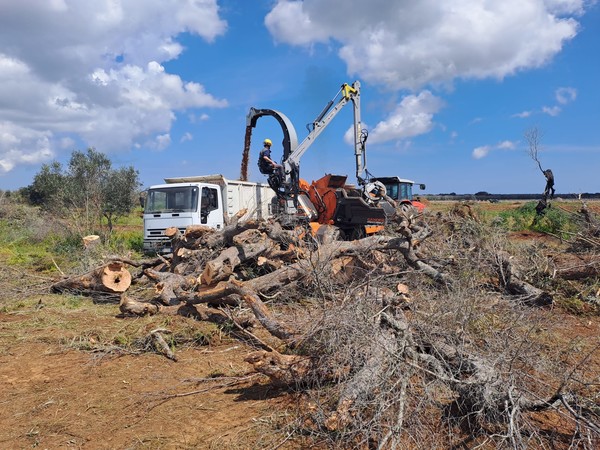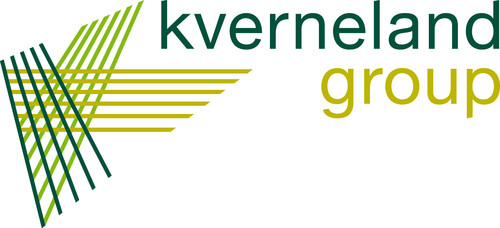
Sustainable agriculture, the successes of the Branches project
The Final Conference of the BRANCHES Project, hosted at FAO headquarters in Rome, presented the results of the European project funded by the Horizon 2020 programme to facilitate the development of the bioeconomy. BRANCHES as a multiplier of good practices
With the Final Conference, held in Rome at the FAO (13-14 November 2023), the BRANCHES project - Boosting RurAl Bioeconomy Networks following multi-actor approACHES - financed by the European Commission under the Coordination and Support Action (CSA) of the Horizon 2020 Programme, is drawing to a close. The closing event was organised in collaboration with the 'Mountain Partnership Secretariat', a voluntary alliance of partners (including ITABIA) working for the United Nations. "The Mountain Partnership disseminates knowledge, information and expertise, from and among its members, in order to stimulate concrete initiatives with which to improve the quality of life and protect the environment in mountain areas around the world. For these reasons - explained Coordinator Rosalaura Romeo at the opening of the proceedings - collaborating with the BRANCHES project and the many stakeholders participating in it is a valid opportunity to be seriously considered”.
BRANCHES is a three-year project (2021-2023) in which 12 partners representing 5 European countries have collaborated well: Finland, Germany, Italy, Poland and Spain. In addition, five other countries - the Czech Republic, Latvia, Lithuania, Portugal and Slovakia - were also involved in the transfer of knowledge and the sharing of results. The reference context is very broad, embracing the many topics of the green economy, from rural spatial management to the biobased industry, including bioenergy. With this in mind, BRANCHES - through the dissemination of technological innovation - sought to accelerate the development of production chains based on biomass, a renewable and widely available resource in agriculture and forestry. The success of the project, coordinated by LUKE (a major Finnish research organisation), was decreed by the qualitative and quantitative level of the results achieved. Among these, a place of honour goes to the description of more than 60 good practices of the bio-economy, all virtuous and concrete examples concerning companies, administrations, technologies, experimentation. These replicable models have been summarised in clear, comprehensive and reader-friendly fact sheets. In addition, each of the partner countries created a stakeholder network (National Thematic Network) involving companies, research organisations, trade associations, public administrations. A much discussed and well described topic was that of energy chains linked to the use of biomass. In this area, the most important innovative element was undoubtedly the organisation of forestry and agricultural sites where modern mechanisation plays a central role in terms of sustainability in the handling and processing of raw materials.
Overall, some 660 experts were directly involved, who in turn acted as a 'sounding board' to reach several thousand other professionals. During the project, the topic of knowledge transfer on the circular bio-economy and its development potential in agro-forestry was addressed through: 40 thematic workshops attended by more than 1,600 people; 10 technical visits with around 2,500 participants; 25 specially produced audiovisuals; a series of interviews with around 20 Italian and foreign entrepreneurs from which the factsheet entitled 'Bioenergy in a time of crisis' took shape. This is a paper highlighting - brainchild of Raffaele Spinelli (CNR - IBE) the consequences of the COVID 19 pandemic and the war in Ukraine on companies operating in the bioeconomy and bioenergy sector. As was partly to be expected, but not taken for granted, it turned out that the impacts of higher energy and raw material prices were well cushioned by those who had direct access to renewable sources and raw materials, particularly locally sourced biomass.
The BRANCHES Final Conference not only took stock of the results obtained - which will be downloadable from the project website (www.branchesproject.eu) for a further three years - but also wanted to ensure continuity for all the work carried out. With this in mind, an aspect much appreciated by the two Policy Officers of the European Commission's Directorate-General for Agriculture (Natalia Brzezina and Alessandra Sasso) was the strong synergy activated with other similar Horizon projects (e.g. RuralBioUP and BIOrural) which, continuing until 2025, will be able to capitalise, with a symbolic passing on of the baton, on the many precious pieces of information gathered by BRANCHES.
In order to further extend the work of the Project beyond the sphere of the partners and their respective stakeholder groups, ITABIA Italian Biomass Association - responsible for BRANCHES' communication - involved relevant technical and strategic personalities in the closing discussion of the conference. Among them was Professor Fabio Fava (University of Bologna), one of Italy's leading experts in the bioeconomy (over 210 international publications) who sits, by ministerial appointment, at the most prestigious tables in the sector, both at Italian (CNBBSV - National Committee for Biosafety, Biotechnology and Life Sciences) and European level (Horizon Europe - Cluster 6 'Food, bioeconomy, natural resources, agriculture and environment'; CBEJU - Circular Bio-based Europe Joint Undertaking). Furthermore, the Italian primary sector was also well represented by Dr. Enrico Pompei, Director of the Department of European and International Policies and Rural Development of MASAF (Ministry of Agriculture, Food Sovereignty and Forestry). Both provided insights into bioeconomy development strategies in rural areas - European and national - capturing the value of projects like BRANCHES in transferring knowledge and creating networks of professionals interested in working together to meet the challenging goals of the Green Deal.








